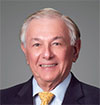How to Deal With Shock After a Car Accident
By Harold Dwin on August 10, 2021 | In Auto Accidents

Car accidents are traumatic for the people involved. In the aftermath, you might face painful injuries and lasting emotional anguish. Even if you weren’t severely injured, you might experience psychological effects of the accident in the weeks, months, and years to come.
Seeking help for shock, both in the short-term and the long-term, is critical for anyone in a serious accident. Here’s some information you can use on how to treat shock after a car accident.
What Causes Traumatic Shock?
Shock is an automatic response in the body after it experiences some kind of traumatic event. The trauma that produces shock can be physiological, psychological, or both.
Physiological shock generally results from a loss of blood or damage to your internal organs that prevents your bodily systems from functioning correctly. This can cause your body to shut down as it attempts to heal from the shock to its system, leading to further injuries or death.
Psychological shock stems from the intense stress the trauma creates. It can produce both psychological and physiological effects.
Types of Shock You Can Experience After a Car Accident
In addition to psychological shock, also known as acute stress disorder, the four main types of physiological shock are:
- Obstructive shock — This type of shock occurs when the blood in your body can’t get where it needs to go. This may happen if you suffer a collapsed lung or similar injury.
- Cardiogenic shock — Damage to the heart may cause decreased blood flow throughout the body, leading to cardiogenic shock. This type of shock is often the result of damage to the heart muscle or a slow heartbeat.
- Distributive shock — If something causes your blood vessels to lose their tone, they cannot pump blood effectively, and you may experience distributive shock. Common causes of distributive shock include severe allergic reactions, sepsis, and severe damage to the nervous system.
- Hypovolemic shock — This type of physiologic shock occurs when there isn’t enough blood in your blood vessels to get sufficient oxygen to your organs. Hypovolemic shock is often caused by severe blood loss, usually resulting from some kind of penetrative injury.
How Long Can Shock Last After a Car Accident?
Physiological shock often occurs quickly after a car accident, though sometimes symptoms may not show up for a day or two afterward. If you have any symptoms of shock, you should see a doctor immediately.
Psychological shock may linger for weeks, months, or even years after a crash. Getting counseling and other mental health treatment can help you deal with the psychological shock of an accident.
Symptoms of Physical Shock
Here are a few of the symptoms of physical shock to watch for after a car accident:
- Cold, clammy skin
- Rapid heart rate
- Fast, shallow breathing
- Excessive sweating
- Dizziness
- Seizures
- Confusion
- Loss of consciousness
- Enlarged pupils
- High blood pressure
- Weakness
- Fatigue
- Chest pain
- Pale skin
- Nausea
- Anxiety
Treatment of Physical Shock
Here are some tips for treating physical shock after an accident:
- If someone is unconscious, check for a pulse and to see if they’re breathing. If they are not breathing, begin CPR.
- If they are breathing, have the person lay down and elevate their legs, so blood flow is directed toward the body’s critical organs.
- The person in shock may be experiencing an allergic reaction, known as anaphylactic shock. They may have an epinephrine injector that can be used to stabilize them.
- Cover the person experiencing shock with a warm blanket.
- Apply first aid to any apparent wounds, and regularly check for breathing and a pulse.
- If they begin to vomit, turn their head sideways.
- Get treatment from a medical professional as soon as possible.
Emotional/Psychological Shock and Post-Traumatic Stress
A car accident isn’t just a jolt to our bodies. It can significantly impact the mind as well. Many people experience psychological shock after an accident. They may experience heightened anxiety, insomnia, nightmares, racing thoughts, irritability, depression, even suicidal thoughts. If left untreated, psychological shock can develop into post-traumatic stress disorder (PTSD).
The best way to treat PTSD after an accident is to speak to a qualified mental health professional. Medication, therapy, and other methods can help you process the accident in a healthier way.
Contact Our Experienced Maryland Car Accident Lawyer Today
The Maryland car accident lawyers at Cohen & Dwin have extensive experience helping accident victims recover fair compensation for their injuries after an accident, including psychological and physiological shock.
Contact our office today for a free initial consultation.

Attorney Harold P. Dwin, co-founder of Baltimore premier law firm Cohen & Dwin, P.A., is proud to be able to help clients in need by simplifying complex legal matters and solving legal problems that cause immeasurable stress.
